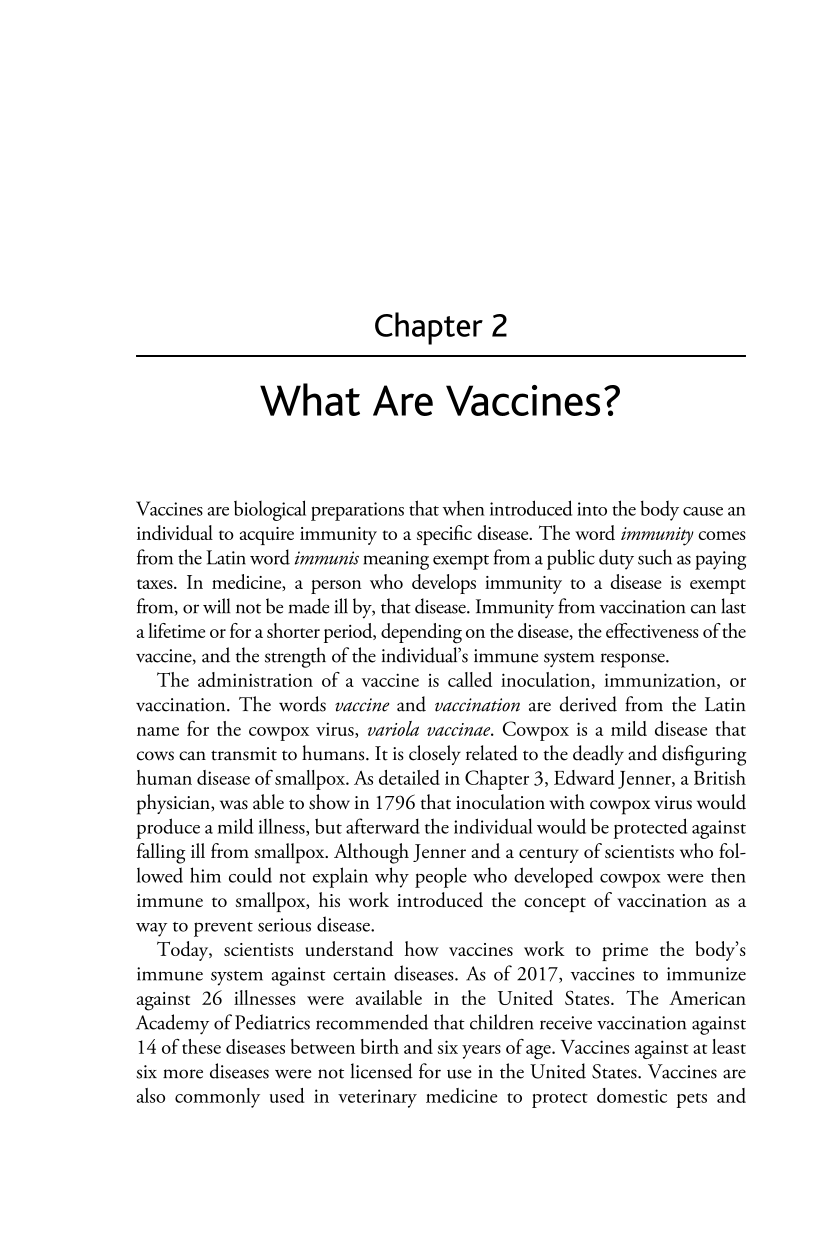Chapter 2
What Are Vaccines?
Vaccines are biological preparations that when introduced into the body cause an
individual to acquire immunity to a specific disease. The word immunity comes
from the Latin word immunis meaning exempt from a public duty such as paying
taxes. In medicine, a person who develops immunity to a disease is exempt
from, or will not be made ill by, that disease. Immunity from vaccination can last
a lifetime or for a shorter period, depending on the disease, the effectiveness of the
vaccine, and the strength of the individual’s immune system response.
The administration of a vaccine is called inoculation, immunization, or
vaccination. The words vaccine and vaccination are derived from the Latin
name for the cowpox virus, variola vaccinae. Cowpox is a mild disease that
cows can transmit to humans. It is closely related to the deadly and disfiguring
human disease of smallpox. As detailed in Chapter 3, Edward Jenner, a British
physician, was able to show in 1796 that inoculation with cowpox virus would
produce a mild illness, but afterward the individual would be protected against
falling ill from smallpox. Although Jenner and a century of scientists who fol-
lowed him could not explain why people who developed cowpox were then
immune to smallpox, his work introduced the concept of vaccination as a
way to prevent serious disease.
Today, scientists understand how vaccines work to prime the body’s
immune system against certain diseases. As of 2017, vaccines to immunize
against 26 illnesses were available in the United States. The American
Academy of Pediatrics recommended that children receive vaccination against
14 of these diseases between birth and six years of age. Vaccines against at least
six more diseases were not licensed for use in the United States. Vaccines are
also commonly used in veterinary medicine to protect domestic pets and

























































































































































































































































































